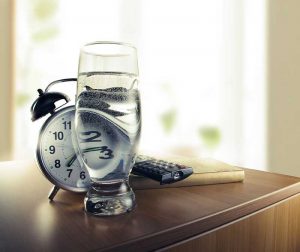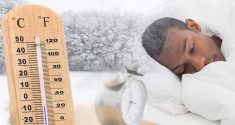Do you get thirsty right before bedtime? Research has found that this almost universal experience happens for a reason.
Why are children, and the rest of us, thirstier before bed? Parents know the story well: You get the kids tucked in and are about to turn off the light when the nightly request for a glass of water comes. Most people feel thirstier in the hours before sleep, but few understand how common this is and why it happens. New research is shedding light on the cell mechanism behind this common craving.
How Your Brain Controls Thirst
Like all bodily urges and instincts, thirst is tightly controlled by the human body and runs according to you body’s innate biological rhythm. When exactly you get thirsty is regulated mainly by the hypothalamus, the part of the brain that regulates temperature, appetite and other essential activities. When your body gets even slightly dehydrated, it makes more of a hormone called vasopressin. Vasopressin causes your body to conserve water by concentrating urine and increasing the reabsorption of water from the kidneys. We have sensors in our brain and throughout our blood vessels that constantly sense the concentration of our blood so we will be thirsty when more fluid is needed.
Why You Get Thirsty Before Bed

All Healthy Body Systems Live By Your Circadian Rhythm
Anyone who has had to go to the bathroom at an inopportune moment will have a hard time believing that our bladders run a fine-tuned operation. However, there actually is a set clock running your urinary tract. When mice have functional circadian rhythm genes, they urinate more at certain times of the day. When they have these genes altered or deleted, they urinate more steadily throughout a 24-hour period, which can interfere with sleep.
Although it is hard to make the connection for most people, feeling thirsty before bedtime is directly tied to being able to sleep through the night without a visit to the bathroom. Because getting uninterrupted sleep is important to our health in a variety of ways, our bodies release hormones that make us reduce urine output at night. Feeling thirsty is merely a side effect of this hormone.
This new research in the field of chronobiology offers a simple explanation for a common phenomenon. The next time your child asks for a glass of water before bed, or you simply feel like having one yourself, keep in mind that this is deeply ingrained behavior that is created deep inside your brain.







